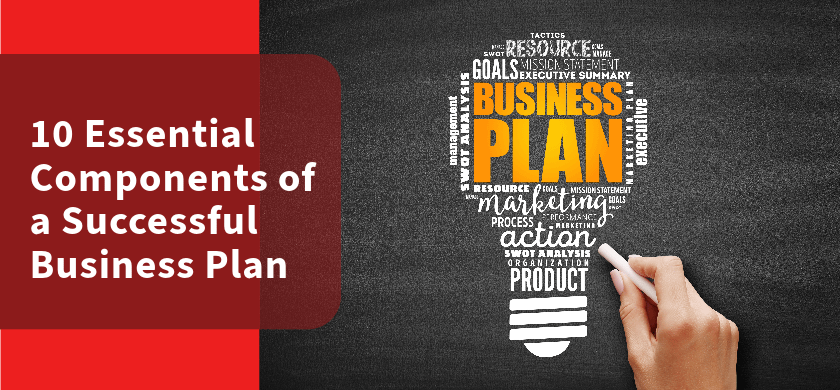In today’s fast-paced business world, having a solid business plan is like having a roadmap to success. Whether you’re a seasoned entrepreneur or just starting your journey, understanding what a business plan is and how to create one is vital. In this article, we’ll break down the key components of a successful business plan and provide expert insights to help you craft your own.
What is a Business Plan?
Before we dive into the details, let’s answer the fundamental question: What is a business plan? Simply put, it’s a written document that outlines your business goals and the strategies you’ll use to achieve them. It serves as a roadmap for your company’s future, helping you make informed decisions and secure funding when needed.
The Importance of a Business Plan
Setting Clear Objectives
One of the primary benefits of a business plan is that it forces you to define your objectives clearly. It’s like setting a destination on your GPS – you can’t reach your goal if you don’t know where you’re headed.
Attracting Investors
Investors and lenders often require a well-crafted business plan before considering financial support. A comprehensive plan demonstrates your commitment and seriousness as an entrepreneur.
Managing Resources Effectively
A business plan helps you allocate resources wisely, ensuring that you don’t overspend or waste valuable time and money on unnecessary ventures.
Navigating Challenges
In the ever-changing business landscape, challenges are inevitable. Your business plan acts as a strategic guide, helping you adapt and overcome obstacles.
Enhancing Decision-Making
When faced with tough decisions, you can refer to your business plan to evaluate the impact on your long-term goals, making the decision-making process more straightforward.
Building Confidence
Having a solid plan in place boosts your confidence as a business owner. It provides a sense of direction and purpose, which can be motivating during challenging times.
Crafting a Comprehensive Business Plan
Now that we’ve covered the importance of a business plan, let’s explore the key elements that make up a comprehensive one. Remember, your plan should be tailored to your unique business, but these components are essential:
1. Executive Summary
This is a concise overview of your entire plan, summarizing your business concept, goals, and strategies. It’s the first impression for potential investors.
2. Company Description
Provide detailed information about your company, including its history, mission, and vision. Explain what sets you apart from competitors.
3. Market Analysis
Conduct thorough market research to understand your industry, target audience, and competitors. Identify opportunities and challenges in the market.
4. Organization and Management
Outline your company’s structure, management team, and key personnel. Investors want to know who’s driving the ship.
5. Products or Services
Describe what you offer in detail. Highlight your unique selling points and how your offerings meet customers’ needs.
6. Marketing and Sales Strategy
Explain how you plan to attract and retain customers. Detail your marketing campaigns, sales tactics, and pricing strategies.
7. Funding Request
If you’re seeking external funding, specify the amount you need and how you’ll use it. Be transparent about your financial needs.
8. Financial Projections
Provide financial forecasts, including income statements, balance sheets, and cash flow projections. Investors want to see potential returns.
9. Appendix
Include any additional documents or information that support your plan, such as market research data, resumes of key team members, or product brochures.
10. Timeline and Milestones
Set clear milestones and timelines for achieving your goals. This helps track progress and holds you accountable.
FAQs about Business Plans
Q: How long should a business plan be?
A: While there’s no fixed length, a typical business plan ranges from 20 to 40 pages. Focus on clarity and relevance rather than length.
Q: Do I need a business plan if I’m not seeking funding?
A: Yes! A business plan is a valuable tool for guiding your business, regardless of funding needs. It helps you stay on track and make informed decisions.
Q: Can I update my business plan over time?
A: Absolutely. In fact, it’s advisable to revisit and revise your plan regularly to reflect changes in your business environment and goals.
Q: What should I include in my executive summary?
A: Your executive summary should provide a snapshot of your entire plan, highlighting key points such as your business concept, market analysis, and financial projections.
Q: How do I conduct market research for my business plan?
A: Start by gathering industry reports, analyzing competitors, and surveying potential customers. Use credible sources and data to support your findings.
Q: Is it necessary to hire a professional to write my business plan?
A: While it’s possible to create your plan independently, hiring a professional, such as a business consultant or writer, can ensure a polished and compelling document.
Conclusion
In conclusion, a well-crafted business plan is an indispensable tool for any entrepreneur. It not only helps you define your goals but also guides you on your journey to success. Whether you’re seeking funding or simply want to run your business more efficiently, invest the time and effort into creating a comprehensive business plan tailored to your unique vision. With the right plan in place, you’ll be better prepared to navigate the challenges and seize the opportunities that come your way.

